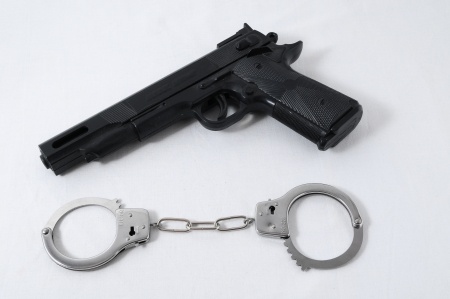
The three-judge appellate panel concluded in relevant part: The court’s dismissal of the PDVA complaint against defendant following a retrial on the merits also constituted a determination that defendant lacked any fault permitting a forfeiture of weapons, and the State otherwise failed to present any evidence that issuance of a handgun purchase permit or firearms purchaser identification card “would not be in the interest of the public health, safety, or welfare” under the disability in N.J.S.A. 2C:58-3(c)(5). In sum, following the dismissal of Emma’s complaint at the second trial, there was no basis in law or fact for the two-year bar. The State’s argument that a literal interpretation of the statute requires a contrary result is wholly inconsistent with the Legislative scheme requiring a two-year bar as a remedy where an FRO is issued pursuant to the PDVA. Lacking a properly issued FRO, there is no need for any remedy under the PDVA, including the two-year bar, here.
At oral argument, the State conceded that, even under its interpretation, an FRO that is invalidly entered does not support a finding of a disability. The State, however, argues that is not the case here because the court did not make an express finding the FRO was void ab initio or that it vacated the FRO nunc pro tunc. The State thus contends the FRO, despite its vacation by the court, mandated imposition of the two-year bar and resulted in a disability requiring forfeiture of defendant’s weapons.
The State’s argument ignores what occurred before the court on Emma’s complaint. Although the record is sparse, it is clear the court granted defendant’s motion for reconsideration of its decisions denying defendant’s request for an adjournment to obtain counsel and granting the FRO. Even in the absence of detailed findings by the court, we can reasonably infer the court granted the reconsideration motion because it “expressed its decision on the FRO based upon a palpably incorrect or irrational basis, or . . . it was obvious that it either did not consider, or failed to appreciate the significance of probative, competent evidence.” In other words, the court determined it erred by entering the FRO in the first instance. The court held a second trial on Emma’s complaint as a result. Such an FRO, once vacated, did not support a mandatory two-year bar, and, contrary to the State’s contention, an FRO entered in error and then vacated cannot, by itself, result in a disability permitting or requiring forfeiture.
Our decision is limited to the singular argument the State presents in support of its appeal. We hold only that the State’s reliance on N.J.S.A. 2C:25-29(b) as the basis for defendant’s alleged disability under N.J.S.A. 2C:58-3(c)(6) is not supported by the evidence because the court determined the FRO was entered in error and vacated the FRO as a result. We do not address, decide, or offer an opinion on any other issues concerning the circumstances, if any, under which an order entered may or may not result in a disability. The parties have not presented any arguments concerning such issues, and we limit our decision only to the arguments presented and addressed by the parties. Issues not briefed on appeal are deemed waived.
The procedural history gives the impression that an FRO was initially entered to dispose of a case on often crowded FRO dockets. Courts will often deny pro se adjournment requests under these circumstances because they do not believe a non-lawyer would be motivated or sophisticated enough to appeal the decision. Here, the pro se belatedly hired an attorney to not only make a motion for reconsideration of the pro se decision, but to also contest the State’s appeal on the weapons forfeiture issue.
